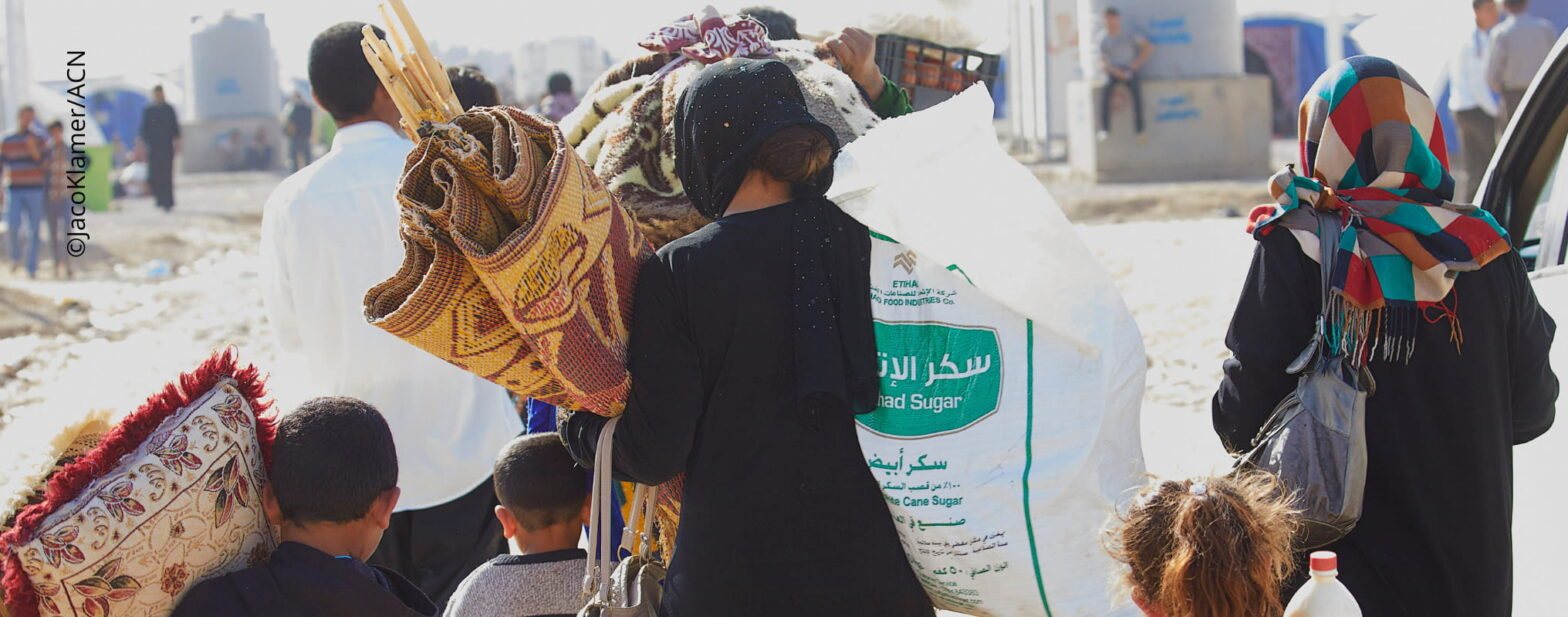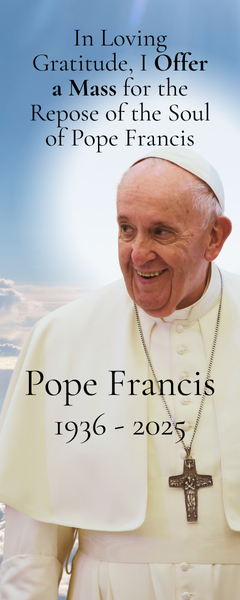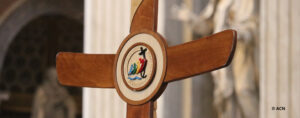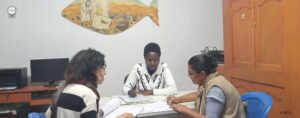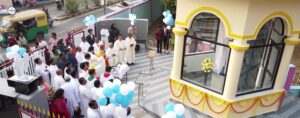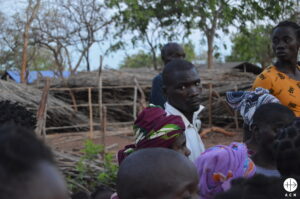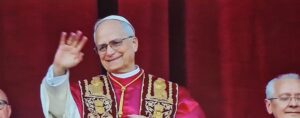Story written by Maria Lozano, director of Aid to the Church in Need (ACN) International’s Press and Media Department. In it, we read the testimonies of the people that the ACN delegation was able to meet, shortly after the invasion of the Nineveh Plains by the Islamic State (IS). Here is Part 2, in which some Christians remind us that this land of Iraq is also theirs. To read Part 1, click here : https://acn-canada.org/iraq-august-6-2014-one-story-one-hundred-thousand-faces-1/.
Part 2
A land drenched with blood
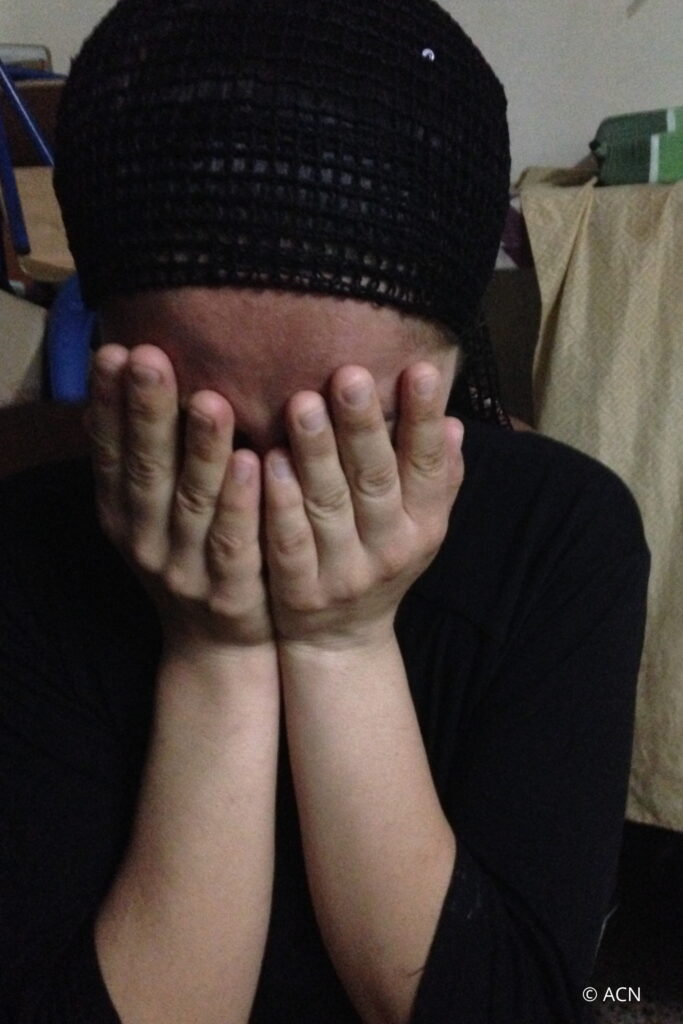
“I cannot go on living here,” laments the father of David, one of the boys killed by the Islamic State (IS) bomb in Qaraqosh. “This country is drenched with blood.” The mother, a young woman clothed completely in mourning, buries her head in her hands, weeping. They have no papers, no passports. They don’t know how to go about requesting a visa, but they keep repeating over and over again that they want to go, they don’t care where, but simply out of this land of suffering. Here there are no specialist staff to help them deal with their trauma and tragedy; they are crowded together with all the other refugees in a school in Ankawa.
His brother Adeeb (photo below) used to work for the dam in Mosul. In broken but clear English, he asks: “Why is it that the Muslims who come from outside have their rights recognized in the European countries, while here they treat us like dogs?
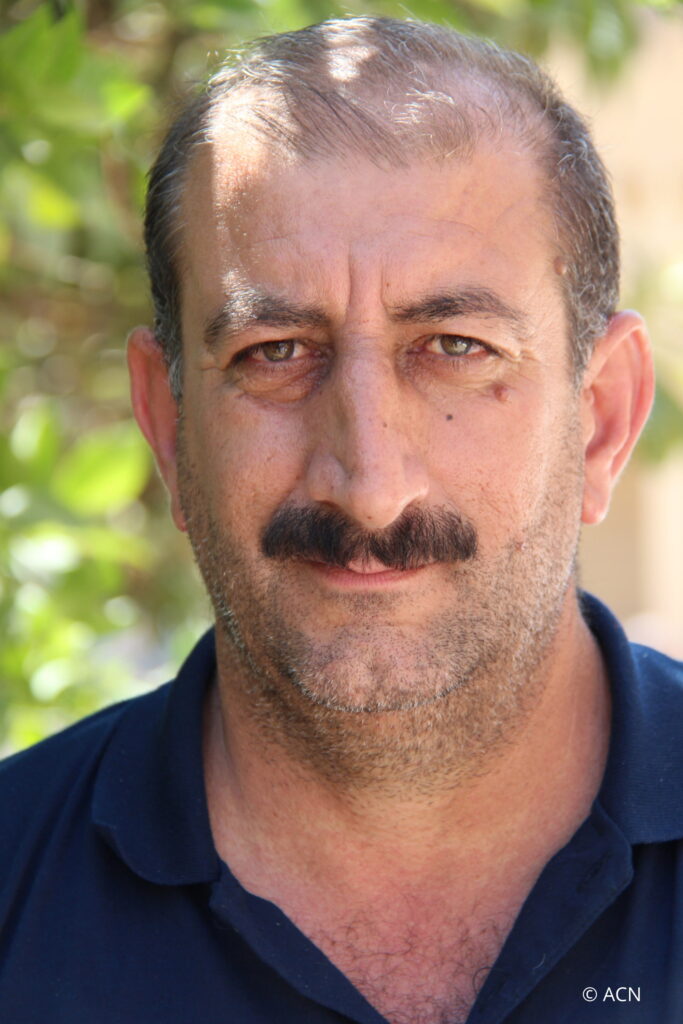
Yet in our case, we haven’t even come from outside. This is our country, isn’t it?” Adeeb speaks of the biblical roots of Nineveh, of the land of the Tigris and Euphrates, of the presence of the Christians in Mosul since the second century, of the monastery of Saint Matthew, of the Aramaic language, the mother tongue of Christ, of the Syriac and Chaldean Catholics, of the Orthodox Christian communities, and of an entire, centuries-old religious and cultural heritage, now wounded by death.
The Church, anchor of help and consolation
Yet this past is also present, real and active. The priests, religious, and bishops are all trying to help in whatever way they can. They are everywhere, calling, organizing, asking, listening, counselling, praying. What would become of these people if the Church was not here? Who would care for them?
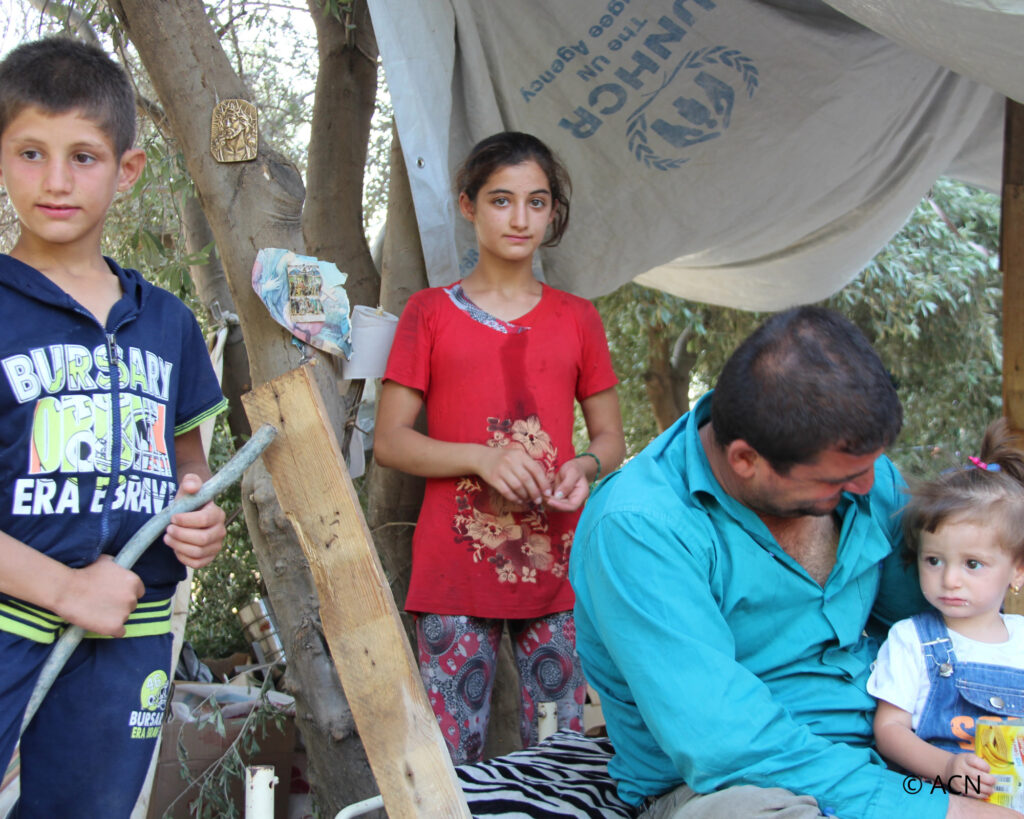
The same applies to Duhok, where another 60,000 or so Christian refugees are scattered amongst the villages and hamlets to the north of the city—some even as far as the border with Turkey. The work being done by the Church is extraordinary.
Father Samir is a Chaldean Catholic priest in one of these villages to the north of Duhok. He tells of the shock of that first day when, from night until morning, this mass exodus began of people filling the streets, sleeping in their cars and on the pavements. In the parish catechetical centre alone, there are now 77 Syriac Orthodox families—321 people altogether, of whom 35 are children. Father Samir does not return home before one or two in the morning. Days of work have continued since then, without a minute’s pause. At 10 o’clock at night, there is a call on his mobile phone explaining that two Yazidi families are on the roadway and have nothing. Father Samir goes out to find them, to bring them matresses and to find them a place to stay in his sister’s home.
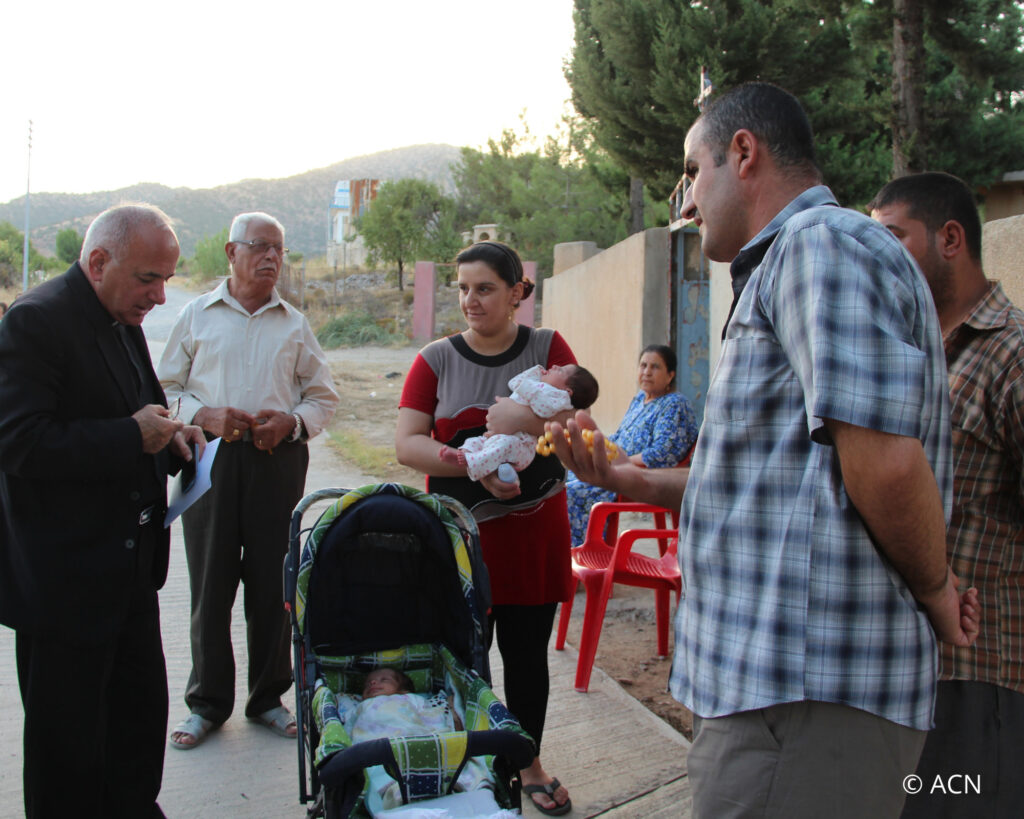
The Chaldean archbishop of Mosul, Emil Nona, is one of five bishops who have likewise been expelled and displaced, and who have lost their homes. He comes round, accompanied by a priest, bringing packets of foodstuffs, visiting the communities, noting their needs: mattresses, tents, a fridge, medicines. He counsels and encourages them. This is a time when the suffering Church comes face-to-face with the heroic Church, which truly lives the Gospel. It is a Church which needs the support, the prayers, and the solidarity of its Christian brothers and sisters throughout the world.
In Erbil, Duhok, and Zakho, and all over Iraq, the face of suffering is seen on so many faces and in so many tears, and there is little hope left: “When merely human hope has vanished, only Christian hope remains.” And everywhere one hears the unanimous cry: “Help us; we cannot continue like this. We, the Christians of Iraq, are victims of disaster, holding out our hands in the hope that someone will save us from death.” They are hoping that the international community will respond and that it will not be the Church alone that comes to their aid. It is a matter of more than mere Christian charity; it is a matter of salvaging the present, the past, and the future of an ancient culture and religion. And so they are calling for immediate aid to help them get out of these makeshift camps, from those tents, suffocating beneath the sun. But also for lasting help, protection and security—the right to live their faith—which, for the Iraqi Christians, is their very culture and identity and which they wish to live out in their own land, the land that belonged to their fathers and grandfathers before them.
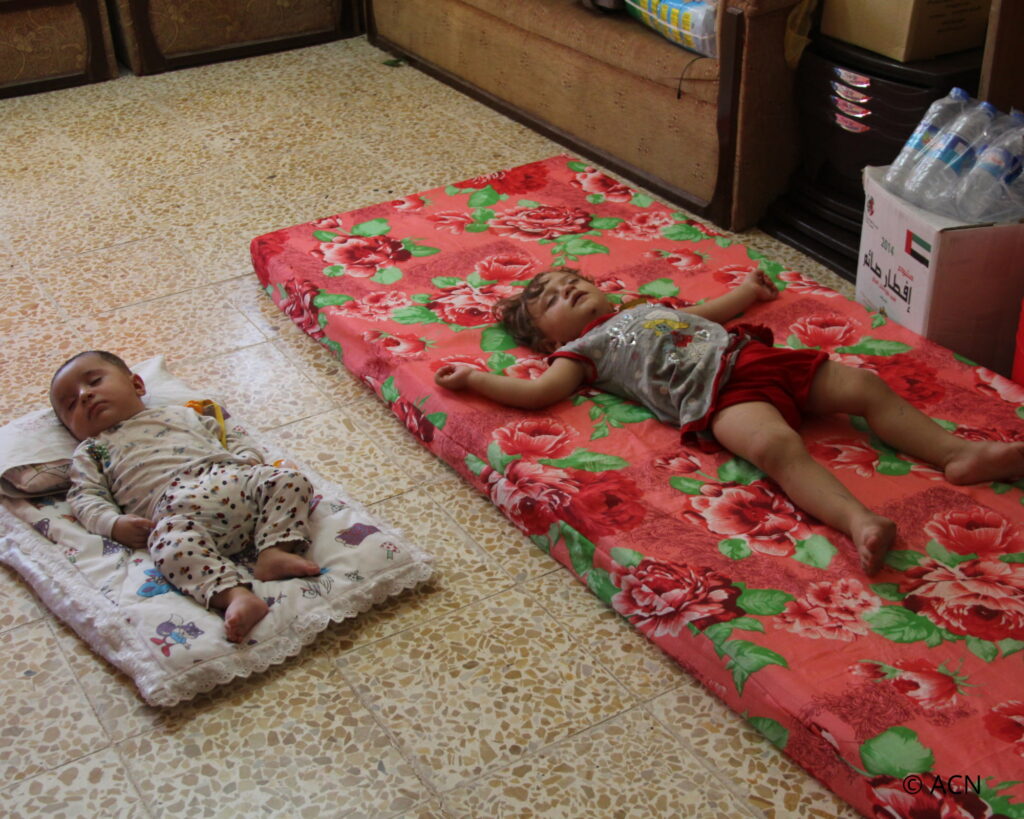
Aid to the Church in Need (ACN), thanks to its benefactors, has supported these communities from the very beginning. To learn more, please consult and download the following informational document produced by our international office.

